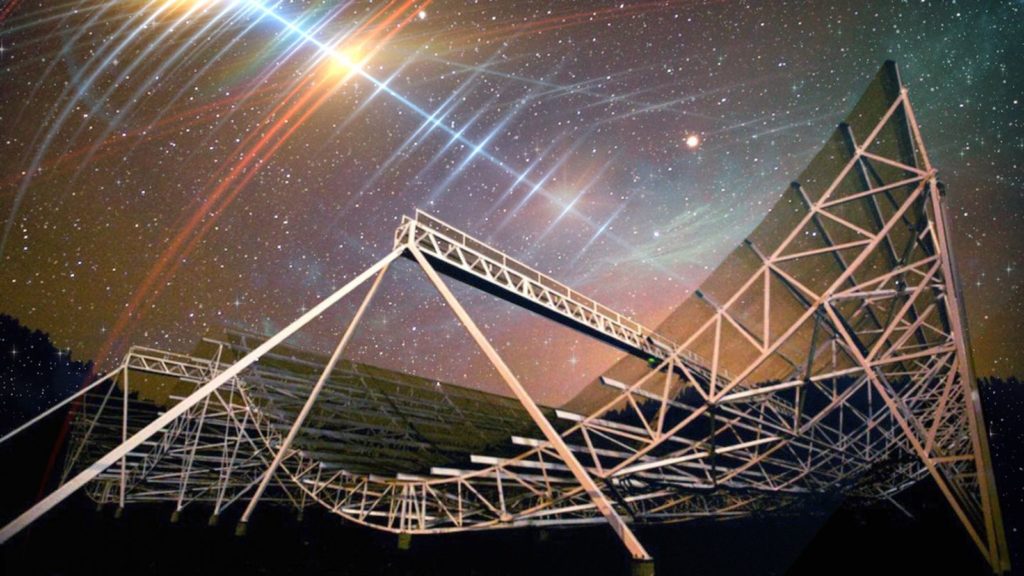Astronomers detect strange ‘heartbeat’ signal billions of light-years from Earth | Science & Tech News

Astronomers have detected a strange and persistent “heartbeat” radio signal coming from a far-off galaxy.
It has been classified as a fast radio burst (FRB), but where such signals are normally intensely strong emissions of radio waves of unknown origin – that typically last a few milliseconds at most – this one is different.
The new signal – which appears to flash in a pattern similar to a beating heart – runs for up to three seconds, about 1,000 times longer than an average FRB.
News of the discovery emerges in the same week that incredible images of a dying star and a ‘cosmic dance’ were revealed in an extraordinary set of NASA photos.
The team detected bursts of radio waves that repeat every 0.2 seconds within this window, in a clear periodic pattern.
Researchers say there are very few things in the universe known to emit these strictly periodic signals.
Daniele Michilli, a postdoc at the Massachusetts Institute of Technology (MIT) Kavli Institute for Astrophysics and Space Research, explained: “Examples that we know of in our own galaxy are radio pulsars and magnetars, which rotate and produce a beamed emission similar to a lighthouse.
“And we think this new signal could be a magnetar or pulsar on steroids.”
Radio pulsars and magnetars are types of neutron star – extremely dense, rapidly spinning collapsed cores of giant stars.
Read more:
Joe Biden discusses NASA’s stunning new images taken with the James Webb Space Telescope
Two fascinating pictures of the gas giant Jupiter have been leaked
Analysis: Why is the first picture from the world’s most advanced telescope such a big deal?
Called FRB 20191221A, the signal is currently the longest-lasting FRB, with the clearest periodic pattern, detected to date.
Its source lies in a distant galaxy, several billion light-years from Earth.
The team hopes to detect more periodic signals from this source, which could then be used as an astrophysical clock.
Recent Posts
- EAA brings back Homebuilders Week webinars for new and experienced builders
- Boeing-backed EVIO launches EVIO 810 hybrid-electric regional aircraft program
- Netflix jet activity spikes days before Warner Bros. acquisition offer
- Daher Kodiak 900 aircraft recieves Brazilian airworthiness certification
- 20-year-old pilot wins $2.4M Hawker 400XP in MrBeast challenge







Recent Comments